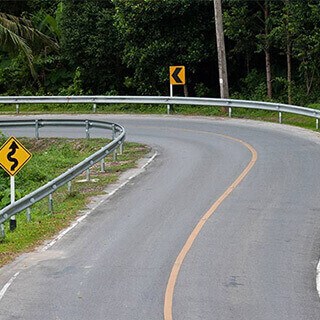Rules of the Road - Managing Lymphedema While Traveling
 written by Julie Auton
written by Julie Auton
Last summer, I was invited to join a group of women on a trip to Machu Pichu in Peru. What could be more exciting? The four-day excursion would involve hiking over mountain passes and through rain forests during the day, and sleeping in tents at night. Porters would carry our heavy duffle bags, along with the food and camping equipment. All I had to carry was a daypack filled with personal items. Always one for adventure, I signed up.
The trip was memorable; however, I brought back an unwanted and unexpected souvenir--lymphedema in my lower arm. The combination of flying six hours each way, lifting and hauling luggage through airports and hotels, and carrying a heavy daypack for four days was more than my body could tolerate.
While staring at my swollen arm, the reality hit me that my lifestyle was forever altered after breast cancer, when I had 37 lymph nodes removed. Surgery put me at risk for developing lymphedema; therefore, I needed to proceed with caution in future travel decisions. Business travel is a necessity for many women, while others travel for sheer pleasure. But the wear and tear that results from conditions on the road—between jet leg, erratic mealtimes, lack of sleep, and the challenge of exercising and eating right--places stress on the body. All of which can cause the onset of lymphedema. So, how can breast cancer survivors manage their health while traveling? I discovered, it’s a matter of planning and awareness.
For air travel, lymphedema patients should wear a compression sleeve because a pressurized cabin can cause swelling. Even those who are at-risk are advised to wear a preventive compression sleeve when they fly.
During the flight, try to move around your arms to encourage circulation. Also, don’t lift heavy luggage into the overhead compartment. Instead, check your luggage or ask for help.
This rule applies on the ground as well. Don’t lift or haul heavy luggage, briefcases, computers or any other equipment or gear. Avoid carrying bags and purses over the shoulder of your affected arm. Invest in luggage with rollers and keep small change on hand to pay porters. It’s worth every penny.
Once you’re at your destination, maintain healthy behaviors to minimize the harsh effects of stress:
Eat a healthy diet, especially low in salt, since it retains fluid. Drink lots of water to keep your body hydrated. And if you consume alcohol, limit your intake to one drink per day.
Get plenty of rest.
Perform deep breathing and massage exercises for lymphdema daily.
Use the same precautions out of town as at home--such as avoiding saunas and hot tubs.
Pay attention to how you are using your arm. Be aware of ways you could be straining it.
Being away from home is no excuse for taking a vacation from managing lymphedema. If only I had paid closer attention to these rules of the road, my trek to Machu Pichu would have had a perfect ending instead of landing me in the physical therapist’s office. This doesn’t mean I need to fear travel or limit my life. As long as I care for my affected arm, the only souvenirs I’ll bring home next time will be those I want to keep.







